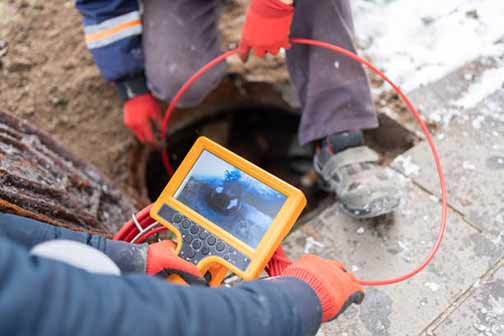
Sewer line problems are easily the worst kind of plumbing problem to have in your home, says Equity Team. A clogged/broken sewer line can undermine your home’s foundation, damage your landscaping, emit foul odors into your house, and make your plumbing fixtures unusable.
But sewer line problems don’t just happen. A sewer line will only become damaged after it has endured several abuses. That’s because sewer lines are one of the sturdiest plumbing pipes in the home. They are designed to withstand all kinds of external and internal stresses.
Usually, sewer line damages result from poorly addressed long-term problems. This can happen because the sewer line is underground, and the signs of problems in the system do not show up inside the home.
Other times, it is because the homeowner doesn’t know how to interpret the signs of sewer line problems that are showing up in their home. As a result, they misdiagnose the issues and minimize their importance until the sewer line problems blow up in their faces.
To prevent major problems in your sewer line, it is essential to understand these three things:
- How to detect the signs of sewer line problems in your home.
- The actions that can cause avoidable sewer line problems in your home.
- How to do proactive maintenance to prevent sewer line problems.
Signs of sewer line problems in your home
If there are problems in your sewer line, you may see the following signs in your home:
- Multiple slow drains: Several drains inside the home may drain slowly at the same time.
- Frequent drain clogs: Drain clogs will return after you solve them because the cause of the problem is inside the sewer line and not in the affected drain.
- Foul odors: A clogged drain will force trapped sewer gases to back up into your home from the sewer line.
- Strange sounds: A clogged drain can cause your toilet or sink drain to make gurgling sounds every time you use the fixtures.
- Unusual reactions: The water in your toilet bowl might move each time you use other fixtures or appliances. The water level in the toilet bowl may fluctuate constantly.
- A wet lawn: If the sewer line is broken, it can release wastewater into the lawn, causing one section of the lawn to become chronically soggy or damp
- Pest invasion: A leaking sewer line can also attract different kinds of vermin to your yard
- Foundation problems: A leaky sewer line may cause structural problems in your home. You may also experience sinkholes and soil shifting as a result of the sewer line problem.
What not to do to your sewer line
To avoid sewer line issues in your home, avoid doing the following things to your drains:
- Do not pour grease into the drain: Fats, oils, and grease congeal into a sticky solid mass that will clog your drain and trap debris.
- Don’t flush non-biodegradable items: Only toilet paper, human waste, and water should go into your toilet. Even if they are flushable, don’t put anything else into the toilet.
- Keep hair out of the shower drain: The combo of soap scum and hair can wreak havoc on your sewer line. Install strainers on drain openings to catch debris.
- Don’t dump food waste in the kitchen sink: Coffee grounds, eggshells, starchy foods, expanding foods (like rice, pasta, and oatmeal), flour, fibrous foods and vegetables (such as pumpkin, corn husks, and celery), and large food scraps should not enter the drains.
- Don’t dump chemical products in the drain: This includes paint, medications, household chemicals, and cleaning products.
- Keep these items out of the sewer line: Cat litter, microbeads or microplastics, medications, dental floss, and latex condoms.
- Do not use chemical drain cleaners: Chemical drain cleaners will not remove the debris inside your drain line. Instead, they can weaken your drainpipes and compound the problems.
Proactive maintenance tips for a healthy sewer system
Knowing what to avoid from your sewer line is not enough; you should also know what to do to keep it flowing and healthy.
- Inspect the sewer line yearly: Professional sewer line camera inspections help you stay steps ahead of problems in your sewer line by revealing those issues early. Early detection of problems will let you solve those problems quickly and cheaply.
- Clean your sewer line periodically: Professional sewer line cleaning will remove the unavoidable buildup inside every sewer line. It is impossible to completely stop buildup inside your sewer line because the wastewater passing through it contains debris that gets deposited inside the pipes. But hydro jetting or sewer rodding the sewer line will remove the debris. This should be done periodically, not when the sewer line is clogged.
Lastly, you need to work with an honest and experienced plumber. A good plumber will see the problems in your sewer line before they become evident. A competent plumber can save you a lot of money by reducing your plumbing maintenance cost and prolonging the life of your sewer line.


